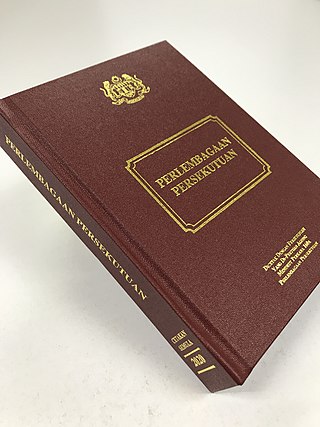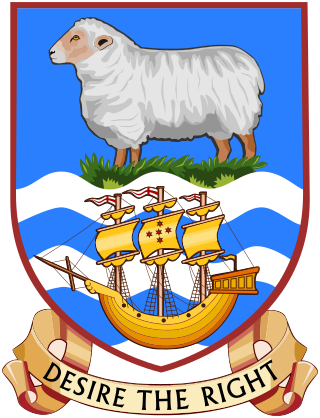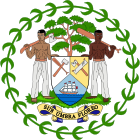
An oath of office is an oath or affirmation a person takes before assuming the duties of an office, usually a position in government or within a religious body, although such oaths are sometimes required of officers of other organizations. Such oaths are often required by the laws of the state, religious body, or other organization before the person may actually exercise the powers of the office or organization. It may be administered at an inauguration, coronation, enthronement, or other ceremony connected with the taking up of office itself, or it may be administered privately. In some cases it may be administered privately and then repeated during a public ceremony.

The Canadian Charter of Rights and Freedoms, often simply referred to as the Charter in Canada, is a bill of rights entrenched in the Constitution of Canada, forming the first part of the Constitution Act, 1982. The Charter guarantees certain political rights to Canadian citizens and civil rights of everyone in Canada from the policies and actions of all governments in Canada. It is designed to unify Canadians around a set of principles that embody those rights. The Charter was proclaimed in force by Queen Elizabeth II of Canada on April 17, 1982, as part of the Constitution Act, 1982.
The Civil Rights Cases, 109 U.S. 3 (1883), were a group of five landmark cases in which the Supreme Court of the United States held that the Thirteenth and Fourteenth Amendments did not empower Congress to outlaw racial discrimination by private individuals. The holding that the Thirteenth Amendment did not empower the federal government to punish racist acts done by private citizens would be overturned by the Supreme Court in the 1968 case Jones v. Alfred H. Mayer Co. The Fourteenth Amendment not applying to private entities, however, is still valid precedent to this day. Although the Fourteenth Amendment-related decision has never been overturned, in the 1964 case of Heart of Atlanta Motel, Inc. v. United States, the Supreme Court held that Congress could prohibit racial discrimination by private actors under the Commerce Clause, though that and other loose interpretations of the Clause to expand federal power have been subject to criticism.

The Spanish Constitution is the supreme law of the Kingdom of Spain. It was enacted after its approval in a constitutional referendum; it represents the culmination of the Spanish transition to democracy.
The 1977 Constitution of the Soviet Union, officially the Constitution of the Union of Soviet Socialist Republics, was the constitution of the Soviet Union adopted on 7 October 1977.

The Federal Constitution of Malaysia, which came into force in 1957 as the Constitution of the Federation of Malaya and was amended in 1963 to form the Constitution of Malaysia, is the supreme law of Malaysia and contains a total of 183 articles. It is a written legal document influenced by two previous documents, the Federation of Malaya Agreement 1948 and the Independence Constitution of 1957. The Federation was initially called the Federation of Malaya and it adopted its present name, Malaysia, when the states of Sabah, Sarawak and Singapore became part of the Federation. The Constitution establishes the Federation as a constitutional monarchy, having the Yang di-Pertuan Agong as the Head of State with largely ceremonial roles. It provides for the establishment and organisation of three main branches of the government: the bicameral legislative branch called the Parliament, which consists of the House of Representatives and the Senate ; the executive branch led by the Prime Minister and his Cabinet Ministers and the judicial branch headed by the Federal Court.

The Caribbean Court of Justice is the judicial institution of the Caribbean Community (CARICOM). Established in 2005, it is based in Port of Spain, Trinidad and Tobago.

The Constitution of the Republic of Singapore is the supreme law of Singapore. A written constitution, the text which took effect on 9 August 1965 is derived from the Constitution of the State of Singapore 1963, provisions of the Federal Constitution of Malaysia made applicable to Singapore by the Republic of Singapore Independence Act 1965, and the Republic of Singapore Independence Act itself. The text of the Constitution is one of the legally binding sources of constitutional law in Singapore, the others being judicial interpretations of the Constitution, and certain other statutes. Non-binding sources are influences on constitutional law such as soft law, constitutional conventions, and public international law.
The basic structure doctrine is a common law legal doctrine that the constitution of a sovereign state has certain characteristics that cannot be erased by its legislature. The doctrine is recognised in India, Bangladesh, Pakistan, and Uganda. It was developed by the Supreme Court of India in a series of constitutional law cases in the 1960s and 1970s that culminated in Kesavananda Bharati v. State of Kerala, where the doctrine was formally adopted. Bangladesh is perhaps the only legal system in the world which recognizes this doctrine with an expressed, written and rigid constitutional manner through article 7B of its Constitution.

The Constitution of Kosovo is the supreme law of the Republic of Kosovo, a territory of unresolved political status. Article four of the constitution establishes the rules and separate powers of the three branches of the government. The unicameral Assembly of the Republic exercises the legislative power, the executive branch led by the President and the Prime Minister which are responsible for implementing laws and the judicial system headed by the Supreme Court.

The Preamble to the Constitution of India presents the principles of the Constitution and indicates the sources of its authority. The preamble is based on the Objectives Resolution, which was moved in the Constituent Assembly by Jawaharlal Nehru on 13 December 1946 accepted on 22 January 1947 and adopted by the Constituent Assembly on 26 November 1949, coming into force on 26 January 1950, celebrated as the Republic Day of India, and was initially drafted by V. K. Krishna Menon. Menon explicitly did not include the words "socialist" or "secular", after consultation with Nehru; the text was later amended during the Indian emergency by Indira Gandhi where the words "socialist", "secular" and "integrity" were added.
The Constitution of the Philippines is the constitution or the supreme law of the Republic of the Philippines. Its final draft was completed by the Constitutional Commission on October 12, 1986, and ratified by a nationwide plebiscite on February 2, 1987.

Lesbian, gay, bisexual, and transgender (LGBT) persons in Belize face legal challenges not experienced by non-LGBT citizens, although attitudes have been changing in recent years. Same-sex sexual activity was decriminalized in Belize in 2016, when the Supreme Court declared Belize's anti-sodomy law unconstitutional. Belize's constitution prohibits discrimination on the basis of sex, which Belizean courts have interpreted to include sexual orientation.

The Judiciary of Barbados is an independent branch of the Barbadian government, subject only to the Barbadian Constitution. It is headed by the Chief Justice of Barbados. Barbados is a common law jurisdiction, in which precedents from English law and British Commonwealth tradition may be taken into account.

Article 9 of the Constitution of the Republic of Singapore, specifically Article 9(1), guarantees the right to life and the right to personal liberty. The Court of Appeal has called the right to life the most basic of human rights, but has yet to fully define the term in the Constitution. Contrary to the broad position taken in jurisdictions such as Malaysia and the United States, the High Court of Singapore has said that personal liberty only refers to freedom from unlawful incarceration or detention.

The Falkland Islands Constitution is a predominantly codified constitution documented primarily within the Falkland Islands Constitution Order 2008, a statutory instrument of the United Kingdom. The constitution, in its present form, was made on 5 November 2008 by Queen Elizabeth II in a meeting of the Privy Council at Buckingham Palace. It was laid before Parliament on 12 November 2008 and came into force on 1 January 2009, replacing the 1985 constitution.

The Constitution of Kenya is the supreme law of the Republic of Kenya. There have been three significant versions of the constitution, with the most recent redraft being enabled in 2010. The constitution was presented to the Attorney General of Kenya on 7 April 2010, officially published on 6 May 2010, and was subjected to a referendum on 4 August 2010. The new Constitution was approved by 67% of Kenyan voters. The constitution was promulgated on 27 August 2010.

The Constitution of Kingdom of Bhutan was enacted 18 July 2008 by the Royal Government of Bhutan. The Constitution was thoroughly planned by several government officers and agencies over a period of almost seven years amid increasing democratic reforms in Bhutan. The current Constitution is based on Buddhist philosophy, international Conventions on Human Rights, comparative analysis of 20 other modern constitutions, public opinion, and existing laws, authorities, and precedents. According to Princess Sonam Wangchuck, the constitutional committee was particularly influenced by the Constitution of South Africa because of its strong protection of human rights.

The Constitution of Barbados is the supreme law under which Barbados is governed. The Constitution provides a legal establishment of the Government of Barbados, as well as legal rights and responsibilities of the public and various other government officers. The Constitution which came into force in 1966 was amended in 1974, 1980, 1981, 1985, 1989, 1990, 1992, 1995, 2000, 2002, 2003, 2005, 2007, 2009, 2010, 2018, 2019, 2020 and 2021. The 1966 document succeeds several other documents concerning administration of Barbados. One of them, the Barbados Charter, is discussed in the present Constitution's Preamble. Prior statutes were created for the administration of Barbados as a colony. As a former English and later British colony, the Constitution is similar to those of other former Commonwealth realms, yet distinctly different in the spirit of the Statute of Westminster.

The Preamble to the Constitution Act, 1867 is a provision of the Constitution of Canada, setting out some of the general goals and principles of the Act. Although the Preamble is not a substantive provision, the courts have used it as a guide to the interpretation of the Constitution of Canada, particularly unwritten constitutional principles which inform the history and meaning of the Constitution.
















